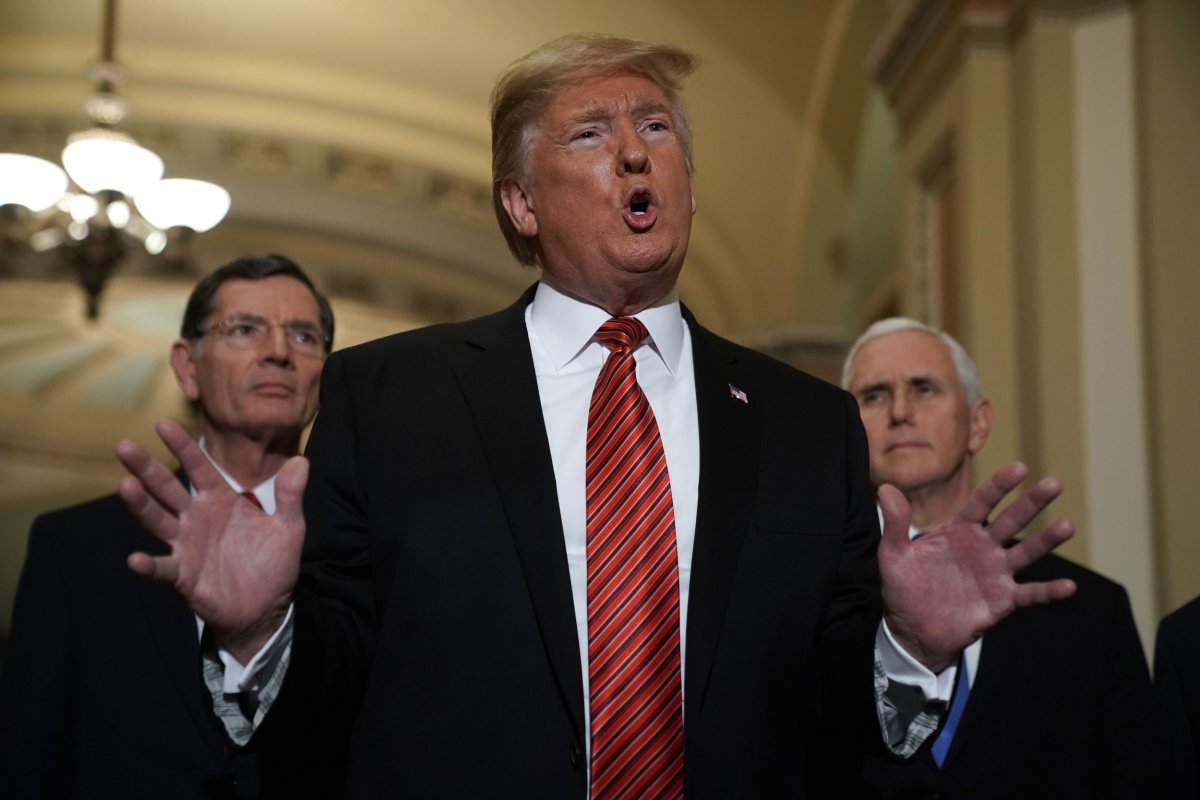A high-ranking White House official said on Wednesday that taxpayers would pay for a wall on the U.S. southern border. The admission came less than 24 hours after President Donald Trump insisted in an Oval Office address that Mexico would pay for the wall through the U.S.-Mexico-Canada trade deal (USMCA), which has not yet been ratified by Congress.
"When you look at the trade deal, the trade deals are going to bring more jobs back to America, it's bringing more business back to America, and its also going to keep our wages up. So this trade deal, in effect, does help pay for this border security," White House Strategic Communications Director Mercedes Schlapp told CNN's Jim Sciutto Wednesday afternoon. "But taxpayers pay for it," responded Sciutto, to which Schlapp agreed. "Yes," she said. "And you know what else taxpayers are paying for? The financial burden of this illegal immigration."

President Trump has regularly repeated his campaign promise that Mexico will fund a $5.6 billion wall and not taxpayers, with the modification that Mexico will pay indirectly through his new trade agreement. The new agreement contains no language asking for Mexico to pay for the wall and does not add any additional tariffs on goods coming to the U.S. from Mexico.
While the trade deal could potentially generate new economic activity and bring jobs to the U.S., those benefits would be felt by American citizens and corporations, not the treasury.
After a number of years, if the U.S. treasury does collect more taxes due to increased economic activity, there is no rule or law earmarking that revenue for a wall.
"I expect essentially zero change in revenue collected from tariffs arising through the USMCA. Under both the existing NAFTA and President Trump's proposed new deal, the United States charges zero tariffs on trade with Canada and Mexico," Chad Bown, senior fellow at the Peterson Institute for International Economics, told CNBC.
It is unclear if the USMCA has the votes to be ratified by the now Democratically-held House. Speaker Nancy Pelosi has indicated she is not satisfied with the deal and thinks it needs to include more safety and environmental guidelines.
In the past, White House representatives have attempted to argue that taxpayers would not pay for the wall. "[Trump's] saying revenue provided and money that would be saved through the USMCA deal, we could pay for the wall four times over and by doing that new trade deal, we have the opportunity to pay for the wall," said White House Press Secretary Sarah Huckabee Sanders last month. This is the first time a Trump administration official has said publicly that taxpayers would fund the barrier.
The federal government has been shut down and 800,000 employees have been furloughed without pay for three weeks over the border wall debate.
Uncommon Knowledge
Newsweek is committed to challenging conventional wisdom and finding connections in the search for common ground.
Newsweek is committed to challenging conventional wisdom and finding connections in the search for common ground.
About the writer
Nicole Goodkind is a political reporter with a focus on Congress. She previously worked as a reporter for Yahoo Finance, ... Read more
To read how Newsweek uses AI as a newsroom tool, Click here.








